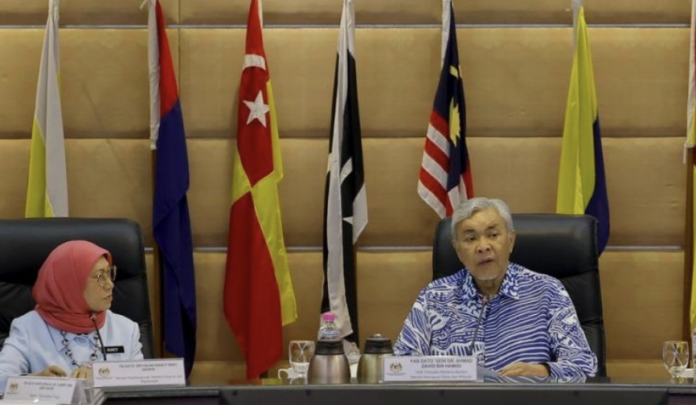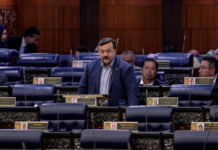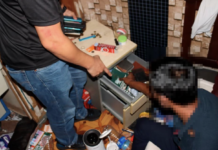PUTRAJAYA, Feb 9 – The government will look into the proposal to empower the community, especially the youth, with accurate knowledge about HIV/AIDS, as well as the preventive measures and related issues, said Deputy Prime Minister Datuk Seri Dr Ahmad Zahid Hamidi.
He said that this followed the current situation of HIV/AIDS cases in Malaysia, which revealed that the highest percentage of reported cases involved young people.
“So, there is a need to expand and intensify prevention, control, and treatment programmes related to HIV/AIDS, as the distribution of HIV/AIDS cases by age shows that 74 per cent of reported cases involve the youth aged between 20 and 29,” he said in a media statement read by the Minister of Women, Family, and Community Development, Datuk Seri Nancy Shukri.
Ahmad Zahid chaired the National Social Council meeting on Thursday.
He said among other proposals put forward in the meeting was to create an aftercare shelter, which aimed to increase the security of employment and education for People Living With HIV/AIDS (PLWHA) who are separated from their families and have no support.
Apart from that, there are also proposals to implement continuous monitoring and restrictions on websites disseminating pornographic material or social networking applications that lead to high-risk HIV activities.
Ahmad Zahid said the meeting also discussed strategies for addressing the issue of school dropout among secondary school students by outlining several improvement suggestions, including disseminating information about the importance of obtaining education at least up to the Sijil Pelajaran Malaysia (SPM) level.
He said the dissemination of that information could be carried out to the target groups through print media, electronic media, and social media.
Ahmad Zahid said four factors have been identified as the causes of student dropout, namely lack of interest in school, having to work to support family living expenses, family problems, and poverty.
Therefore, he said the meeting proposed periodic monitoring of employers who hire school-going workers to ensure compliance with set working conditions and hours; assisting financially struggling families; and providing sufficient financial assistance to students based on their needs and the locality they reside in.
Also proposed was for the government to establish vocational training centres, provide counselling services to parents or guardians, offer psychosocial support, and create learning spaces such as community centres or activity centres to facilitate student learning, he said.
“The government takes note of policy improvements to ensure fair treatment for exposed users.
“This includes adopting best practices that can be implemented by financial service providers for people with disabilities (OKU) in general,” he added.
















